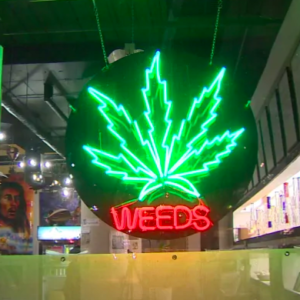Like many of his fellow mayors across America, Michael Hancock, of Denver, Colo., implemented a citywide ban on non-essential businesses to slow the spread of the coronavirus. Among those businesses were specialty vape shops and tobacconists.
Leaving grocery stores, pharmacies and corner stores open during a pandemic is easy for vape shops and tobacconists to understand. But Hancock’s order exempted marijuana dispensaries and liquor stores, consolidating the accessibility of pod system vaping products to establishments that sell tobacco products.
It’s an approach that outrages Danish Iqbal, CEO of e-cigarette wholesaler Medusa Distribution and president of the New Jersey Vapor Rights Coalition.
“Most states that have stay-at-home orders have deemed vape shops to be ‘non-essential’ businesses,” he told InsideSources. “From that perspective, there is no retail vape business since most vape shops in America are now closed.”
Iqbal and other industry advocates believe vape retailers should remain open during the COVID-19 lockdown, arguing that smokers aren’t going to quit during the pandemic. If vape shops are closed — but liquor stores selling traditional cigarettes are open — smokers will simply go back to bad habits.
“Nicotine vaping is, by the admission of the FDA, a safer alternative to combustible tobacco cigarettes,” Iqbal said. “While convenience stores and gas stations are still selling those, millions of people who switched to vaping now have no access to products. It is essential to keep people who switched from cigarettes off of them.”
Industry and harm reduction advocates agree.
Chelsea Boyd, a harm reduction research associate at the R Street Institute, believes keeping vape shops open is a no-brainer.
“I think the need to keep vape shops open as ‘essential businesses’ is important, since cigarettes are easily accessible at other essential businesses, whereas vapor products likely are not,” Boyd told InsideSources.
Alex Clark, CEO of the Consumer Advocates for Smoke-Free Alternatives Association, recently emailed supporters to call on their governors to establish vape shops as essential during states of emergency.
“Governors need to hear from consumers about how important it is to maintain access to vapor shops — especially in a time of crisis, ” Clark wrote. “Under high stress and with limited options, it is very likely that we will see hundreds of thousands of people go back to smoking.”
Tobacco prohibitionist groups don’t agree, and they have been using the coronavirus emergency to make their case for restrictions — or even an outright ban — on e-cigarettes and other alternatives to traditional tobacco. But that’s not a case for keeping pot shops open, or an argument for marijuana use being less of a health risk than smoking.
One thing Mayor Hancock and the cannabis industry have on their side is public sentiment. A YouGov poll found that 58 percent of respondents believe medical marijuana dispensaries should be considered “essential businesses” — which also includes shops that sell and distribute marijuana and hemp vaping products.
Interestingly, many European countries — including Italy, Spain and France — kept their vape retailers open, concluding it was important to ensure e-cigarette users have access to safer alternatives to traditional cigarettes to mitigate the impact of COVID-19.
There is currently no scientific literature showing that smoking marijuana will do the same.

